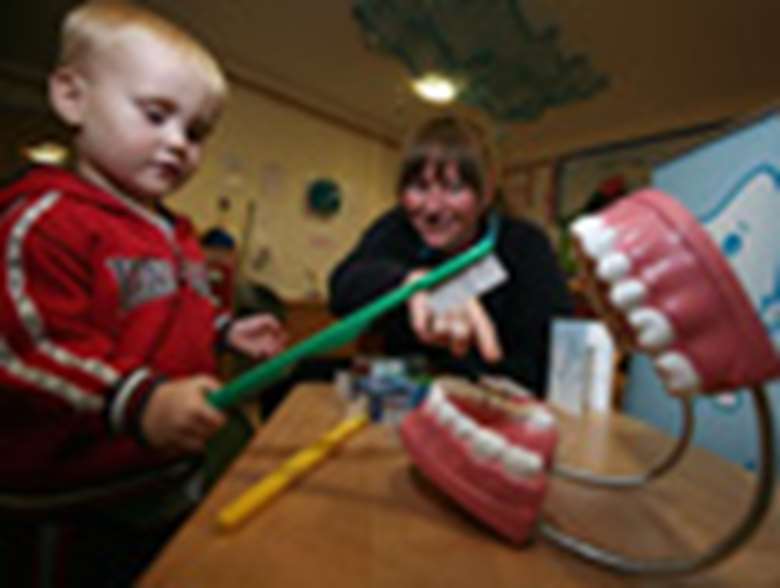In Practice: Case Study - A fresh approach to dental health
Tuesday, September 30, 2008
A joint campaign between Stockton-on-Tees Primary Care Trust and local children's centres has set out to improve oral health among young children. Jo Stephenson finds out why partnership working has been crucial to its success.

Objectives: Teeside has one of the highest dental decay rates for children in the country - almost double the national rate for five-year-olds.
"We needed to do something with other agencies," says Kamini Shah, consultant in dental public health at Stockton-on-Tees Teaching Primary Care Trust (PCT). "If you get to children from a young age when they're starting to brush their teeth you can develop good practice that will stay with them for the rest of their life."
A joint campaign was developed by the PCT's oral health promotion department and children's centres in Stockton-on-Tees.
What was done: The PCT-funded Tiny Teeth project is now running in centres in all four of Stockton-on-Tees' new integrated services areas. Home visitors pass on key oral health messages when they visit families as part of general advice on health and wellbeing. Families can also take part in centre-based Tiny Teeth Clubs, with weekly sessions on one of five themes.
As an incentive to come, parents collect stickers to qualify for a prize draw. The PCT also provides res-ources such as leaflets and starter packs, which include toothbrushes and toothpaste. "Not every child in Teeside has their own toothbrush," says Shah. The scheme takes a whole family approach and looks at healthy food, weaning and regular dental check-ups, helping families register with an NHS dentist if necessary.
It has been well-received by staff and parents, says Barbara Brookes, who manages three centres. "A scheme like this is fantastic for getting key evidence-based messages across in a fun and innovative way," she says.
The issues: The PCT would like to roll out the initiative to all Teeside centres but Shah admits progress has been slow. "The big challenge has been recruiting children's centres in other areas because of structural changes," she says.
However, the PCT hopes to sign up more centres in the next financial year in areas such as Middlesbrough, Redcar and Cleveland. Partnership working is crucial, says Shah. "We need to work with other people so it is not just coming from dental practices," she says. "Many families are not even registered with a dentist."
Outcomes: Initial evaluation will ask families how useful information was and gather the views of children's centre staff. However, it's still too early to predict the impact on children's oral health.
"We're in it for the medium- and long-term," says Shah. "Hopefully, interventions now will mean when children get to five they won't have a mouth full of holes."
TOP TIPS
Do
- Build effective relationships between health services and children's centres
- Look for common outcomes but be flexible. Oral health campaigns can help to promote other health messages on diet, nutrition and breastfeeding
- Involve parents to ensure resources are useful and accessible
Don't
- Set unrealistic targets. Start small and use lessons gained from that to expand
- Let different professional "languages" hinder partnership work. Be crystal clear about what's expected.




